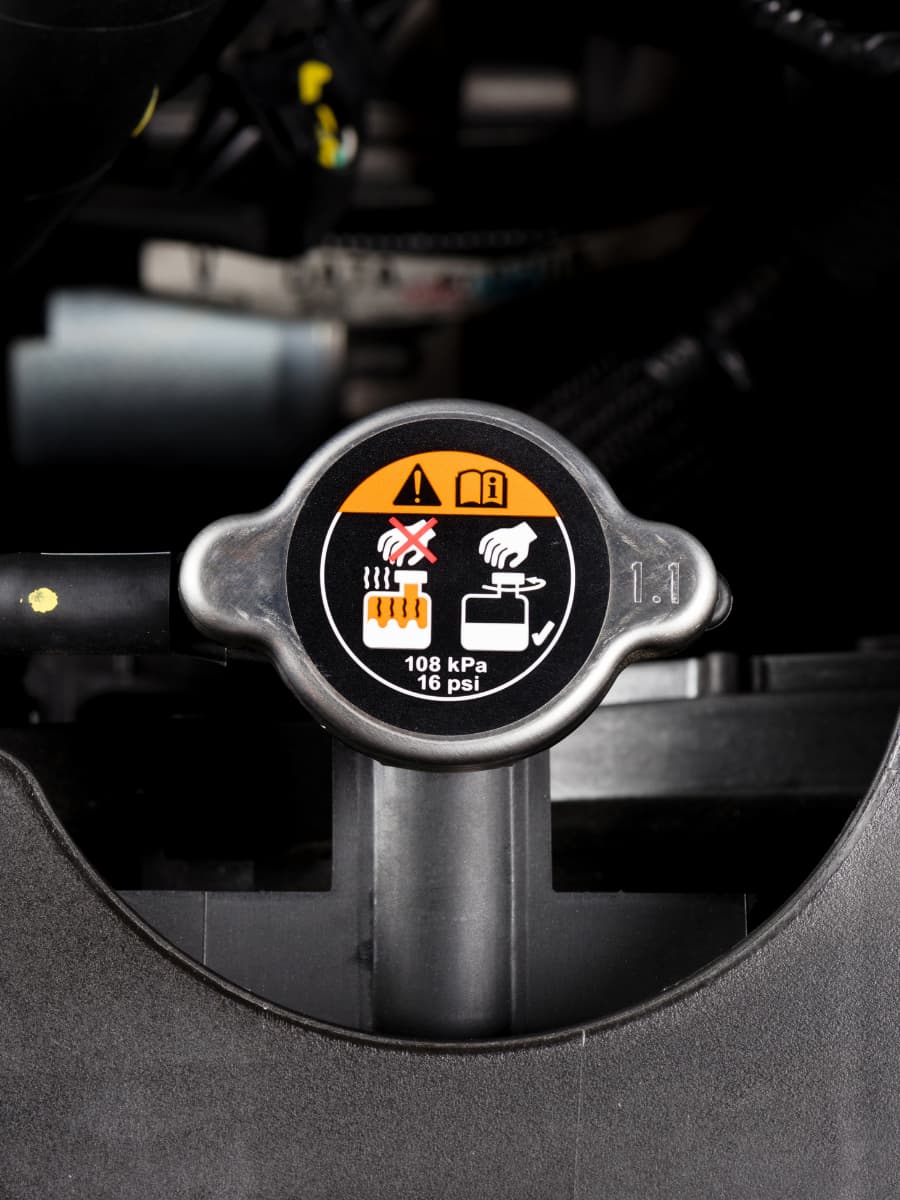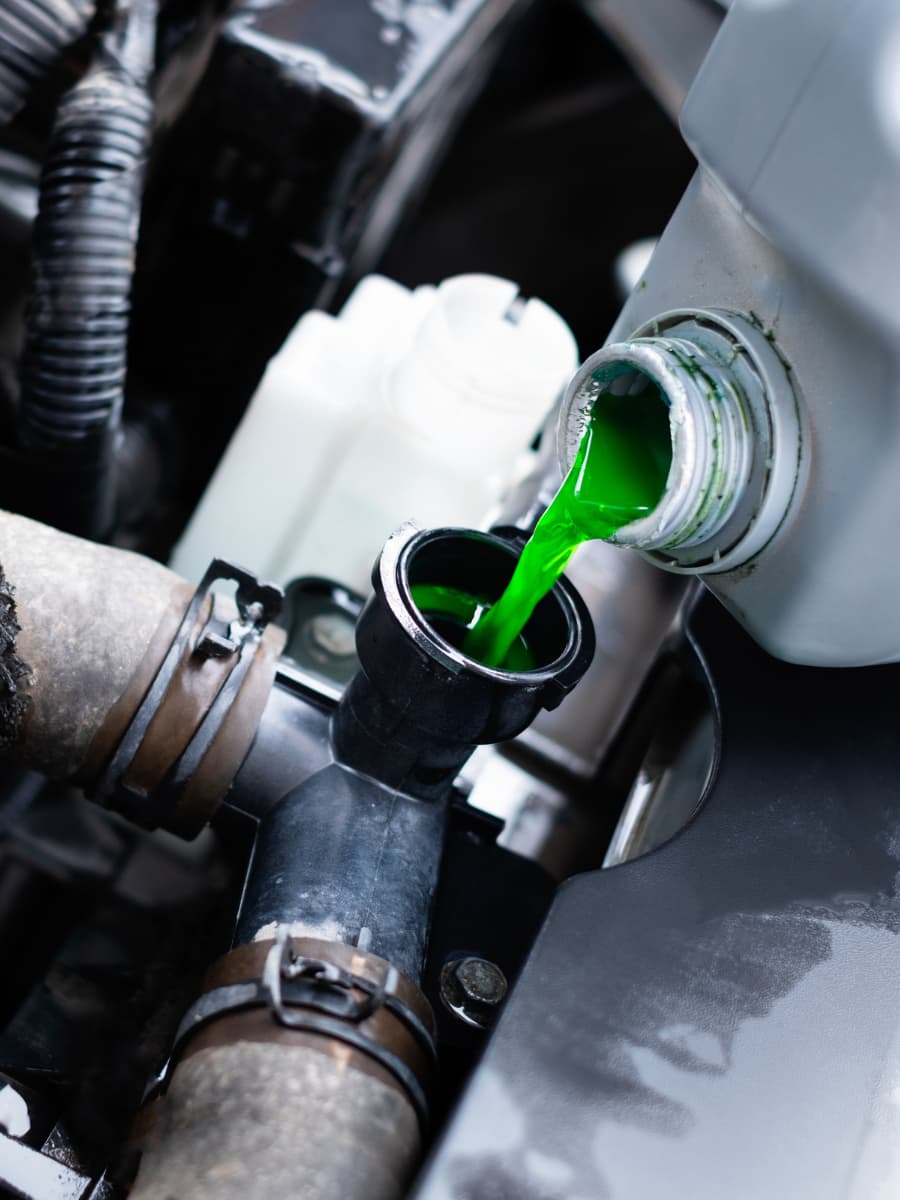Under the hood of every vehicle, you’ll find the all-important cooling system. It’s built from a series of hoses, fans, pumps, and fluid. This fluid, or coolant, is essential in transferring heat away from the car's engine and out into the air, preventing it from overheating and causing significant damage.
Even in a well-maintained vehicle, the coolant can begin to leak and become totally ineffective. Naylor’s Auto Repair is a full service auto shop that can diagnose and repair any vehicle coolant system if you have a leak or suspect a problem.
The Most Common Signs of a Coolant Leak
Coolant Pooling: One of the most obvious signs is spotting a pool of coolant under your car. Coolant comes in various colors, including blue, red, green, violet, yellow, or orange. If it's been in your car for a while, it might look brownish due to contaminants. If you are unsure that your car has a leak, place a piece of cardboard underneath to catch any potential drips.
Distinctive Odor: Coolant has a unique, sweet smell, almost like maple syrup. If you start to notice this aroma while driving or after parking, it's a clear sign of a coolant leak.
Oil Issues: If you spot frothy bubbles or the presence of oil in the radiator or header tank, it's a sign of a coolant leak. This mixture can lead to significant engine problems if not addressed promptly.
Steam: If steam starts coming from under the hood while driving, it's a clear indication that coolant is leaking onto hot engine parts. Pull over as quickly and safely as possible and turn off the car to prevent any damage to the engine or cooling system.
Dashboard Warning: Modern cars have sensors that detect low coolant levels. If your check engine light illuminates, it might be due to a coolant leak. Check the coolant reservoir under the hood to confirm if the levels are low or not.
Engine Temperature: If the temperature gauge on your dashboard indicates that the engine is hotter than usual, it's a sign that there's not enough coolant circulating. Try to pull over, turn off the car and let it cool before driving again. If possible, call for a tow truck to Naylor’s.
Drip Monitoring: While some dripping is normal, especially after using the air conditioner, an increase in the size or frequency of puddles under your car is cause for concern. If there is a flow of fluid coming from under the car, pull over or get the car to Naylor’s as quickly as possible.


What Are the Average Causes of Coolant Leaks?
Coolant leaks can come from either external or internal parts, each with their own unique causes which drivers should be aware of.
External Coolant Leaks:
- Over time, radiator hoses can wear out, leading to small holes or tears.
- The points where hoses connect to the engine or radiator can weaken, leading to leaks.
- The coolant reservoir can crack or get damaged, causing leaks.
- Not having enough coolant fluid in the system can cause the engine to overheat, leading to increased pressure and leaks.
Internal Coolant Leaks:
- A blown head gasket is a major issue and can lead to coolant mixing with oil in the engine.
- Over time, radiators can corrode, leading to leaks.
- If the radiator cap doesn't hold pressure, from being faulty or deteriorated, it can cause leaks.
- The seal or the water pump itself can fail, leading to a leak.
- Cracks or damage in the expansion tank can lead to leaks.
How Long Can You Drive a Car With a Coolant Leak?
While a minor leak might not seem like a big deal, it's essential to address it as soon as possible. Even a small leak can lead to the engine overheating, causing significant damage. In some cases, you might be able to drive for a short distance, but it's always best to get the issue addressed immediately. Without having a mechanic properly address the issue, the car's engine will continue to get damaged until it is no longer driveable.
Visit Naylor’s Auto Repair for Coolant Leak Repair
At Naylor's Auto Repair, we understand the intricacies of your car's cooling systems. If you suspect a coolant leak call us now or schedule an appointment online so we can get your ride back on the road. Our team of technicians are highly experienced working with Japanese import models and other trusted brands.
